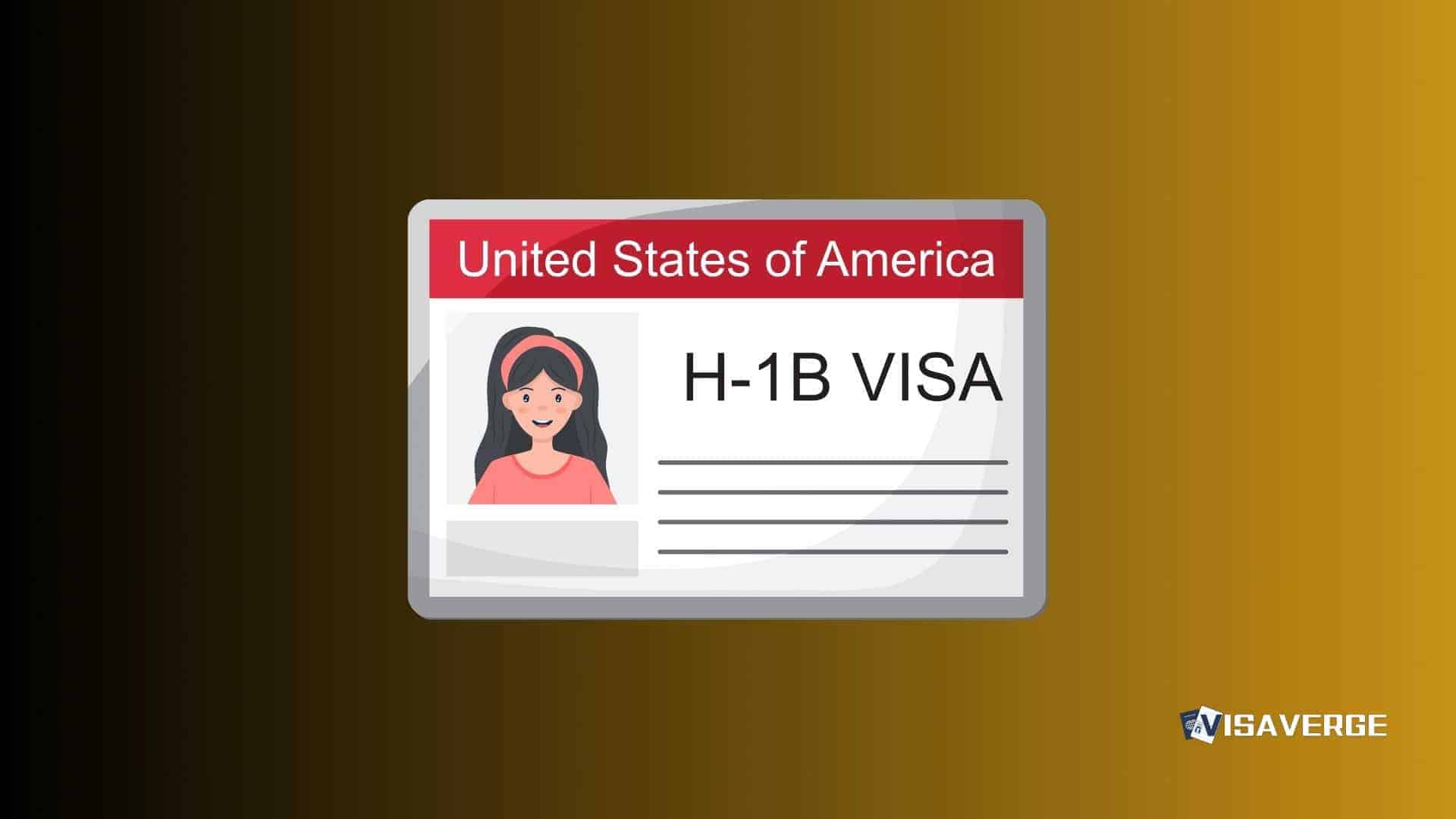Key Takeaways:
- President Biden’s new policies aid DACA recipients and undocumented immigrants in securing H-1B visas and employment-based pathways.
- New policies include pathways to residency for undocumented spouses of U.S. citizens and streamlined D-3 waiver processes.
- Policies provide opportunities for DACA recipients in academia and resolve inefficiencies in H-1B visa applications and D-3 waivers.
How Could New Immigration Policies Aid DACA Recipients?
President Joe Biden recently unveiled a significant update in immigration policy that could provide DACA recipients and other undocumented immigrants with more opportunities to secure H-1B visas and other employment-based pathways. This announcement marks a game-changing shift in how undocumented immigrants navigate the complex web of U.S. immigration laws and policies.

What Are the Key Changes in the New Immigration Policies?
On June 18, 2024, President Biden introduced two new immigration policies that stand to impact both DACA recipients and other noncitizens married to U.S. citizens.
Path to Permanent Residency for Spouses of U.S. Citizens
The first policy offers a potential path to permanent residency for certain undocumented immigrants married to U.S. citizens. “In order to be eligible, noncitizens must—as of June 17, 2024—have resided in the United States for 10 or more years and be legally married to a U.S. citizen, while satisfying all applicable legal requirements,” according to the White House. On average, those who qualify have resided in the U.S. for about 23 years. This policy allows a three-year window to apply for a green card and includes provisions for work authorization during this period. The Biden administration estimates this policy could protect approximately half a million spouses of U.S. citizens and about 50,000 children under 21.
Access to H-1B and Employment-Based Temporary Visas for DACA Recipients
The second policy targets DACA recipients and other undocumented immigrants. It directs the State Department and Department of Homeland Security (DHS) to make it easier for these individuals to obtain H-1B or other employment-based temporary visas. This step aims to fill gaps left by the existing DACA program, which does not grant legal status but does protect recipients from deportation.
Why Do Current Policies Fall Short for DACA Recipients?
The current process for DACA recipients seeking H-1B visas or other employment-based temporary visas is fraught with complications.
Issues with D-3 Waivers
DACA recipients require a D-3 waiver to reenter the country on an H-1B visa or other employment-based temporary visa. A D-3 waiver (Immigration and Nationality Act §212(d)(3) waiver) “excuses a wide range (but not all) of grounds of inadmissibility to the United States, including unlawful presence,” explains Curran, Berger & Kludt. Without this waiver, individuals in unlawful status for one year or more face a ten-year ban if they leave the country and attempt to return. “An approved D-3 waiver removes that bar for temporary visa purposes, allowing the Dreamer to then apply for an H-1B visa at a consulate or port of entry, and then (if the visa is granted) to enter the United States in valid nonimmigrant status with work authorization.”
However, the current D-3 waiver process is riddled with inefficiencies. According to Kelli Duehning, a partner at BAL, “It’s typically not a waiver that can be requested in advance.” This uncertainty leaves individuals in a precarious position, unsure if a consular officer will recommend the waiver or if Customs and Border Protection (CBP) will grant it, and how long the process might take.
What Solutions Does the New Policy Offer?
The new policy aims to make the D-3 waiver process more straightforward and predictable.
Consular Officers and Expedited Reviews
The State Department plans to issue new guidance to consular officers via the Foreign Affairs Manual within 30 days. These updates will “encourage consular officers to consider recommending expedited review of waiver requests in conjunction with certain nonimmigrant visa applications overseas,” states the State Department. This would enable eligible individuals to receive work visas faster if DHS approves a waiver of ineligibility.
“Ultimately, CBP has to approve these and agree to expedite them,” notes Duehning. “CBP typically defers to consular officers on the approval aspect but not always on the expedite—so we hope Customs and Border Protection will also get guidance on the expedite criteria.”
The DHS has also committed to collaborating with the State Department to facilitate quicker processing for DACA recipients and other eligible individuals seeking employment-based visas.
Who Stands to Benefit Most from the New Policies?
Advantages for DACA Recipients in Academia
For colleges and universities, the new policy changes present an excellent opportunity to support DACA recipients through existing employment-based immigration options. Miriam Feldblum, the executive director of the Presidents’ Alliance on Higher Education and Immigration, states, “We have been advocating for this clarifying guidance around D-3 waivers with the current administration since 2022, so it is exciting to see it come to fruition.” Feldblum encourages universities to screen their current DACA recipient employees to see if they qualify for an employment-based visa.
Employment-Based Visas and Lottery
However, only about 25% of H-1B registrations are selected in each year’s H-1B lottery due to the low annual limit. Despite this, those hired in H-1B status by universities, nonprofit, and government research institutes are exempt from this limit, providing additional opportunities for DACA recipients in academic settings.
Alternative Visa Options
Kelli Duehning suggests that employers might consider L-1 visas for DACA employees eligible to work in a company’s overseas operations before returning to the U.S. with a D-3 waiver. TN visas also represent another potential avenue for DACA recipients born in Mexico and Canada, as long as they meet the eligibility requirements.
How Does the Policy Affect Long-Term Pathways to Permanent Residency?
Reentering the United States in a lawful temporary status allows individuals to address their time spent in unlawful presence. Maintaining lawful presence after reentering the country on an H-1B visa could help them become eligible for permanent residence through employer sponsorship. Depending on whether their unlawful presence triggered a three-year or ten-year bar, they could apply for adjustment of status in three or ten years.
“The parole in place provisions for undocumented spouses of U.S. citizens will get more press attention, but the other administrative action may be just as important,” notes Cornell Law School professor Stephen Yale-Loehr, an advisor to the National Foundation for American Policy. “Employers have been reluctant to use the D-3 waiver because the process was slow and unclear. New State Department guidance is expected to make D-3 waivers more predictable and faster. In this tight labor market, that will be great news for employers.”
Will the New Policies Face Opposition?
Despite the benefits, the new policies could face opposition, particularly concerning H-1B visas. Opponents of H-1B visas might attempt to restrict the ability of individuals to obtain H-1B status, thus blocking an avenue for DACA recipients to establish their futures in the United States.
What Should Employers and DACA Recipients Do Next?
Both employers and DACA recipients should keep informed about these policy changes and corresponding guidance from the State Department and DHS. Staying updated ensures they can make informed decisions and take advantage of new opportunities.
For official information, you can visit the U.S. Citizenship and Immigration Services’ H-1B Specialty Occupations page.
Conclusion
The new immigration policies announced by President Biden could provide a viable pathway for DACA recipients to secure H-1B visas and other employment-based opportunities. These changes aim to address the current inefficiencies in the D-3 waiver process, making it easier and faster for eligible individuals to gain lawful employment status in the United States. As emphasized by VisaVerge.com, the real work begins with the implementation of these policies, and it remains crucial for affected individuals and their employers to stay informed about the latest updates.
This new direction in U.S. immigration policy offers hope and practical solutions for countless individuals who have been waiting for years for a chance to secure their futures in the land they call home.
Learn Today:
Glossary of Immigration Terms
- DACA (Deferred Action for Childhood Arrivals):
A U.S. immigration policy allowing undocumented individuals brought to the U.S. as children to receive a renewable two-year period of deferred action from deportation and become eligible for a work permit. - H-1B Visa:
A non-immigrant visa that allows U.S. employers to temporarily employ foreign workers in specialty occupations that require theoretical or technical expertise. - D-3 Waiver (Immigration and Nationality Act §212(d)(3) waiver):
A waiver that removes certain grounds of inadmissibility, including unlawful presence, allowing individuals to apply for temporary nonimmigrant visas like the H-1B, despite prior immigration violations. - Adjustment of Status:
The process that allows an individual on a valid temporary visa to apply for permanent residency (a green card) without leaving the United States. - Parole in Place:
A discretionary act by USCIS to allow eligible undocumented immigrants who are spouses of U.S. citizens to remain lawfully in the United States while they apply for a green card, without being deported.
This Article In A Nutshell:
New immigration policies could greatly aid DACA recipients by simplifying the process for obtaining H-1B visas. These changes focus on easing visa pathways and expediting waiver approvals, providing better opportunities for employment and stability in the U.S., ultimately offering a more predictable and hopeful future for many.
— By VisaVerge.com
Disclaimer: The information provided in this article is for informational purposes only. If you reference or use any content from this article, please attribute it to VisaVerge.com by including a link to the original source. We appreciate your adherence to our content usage policies and your commitment to giving proper credit.
Read more
- DACA Waivers: New Relief Options for Dreamers
- DACA Recipients to Gain Expanded Health Coverage Under Biden Plan
- Sample DACA Advance Parole Letter Examples
- DACA Travel Authorization: How to Apply for Advance Parole and I-131 Travel Document
- Guide to Writing an Effective DACA Renewal Cover Letter: Tips, USCIS Application Process, and Eligibility







